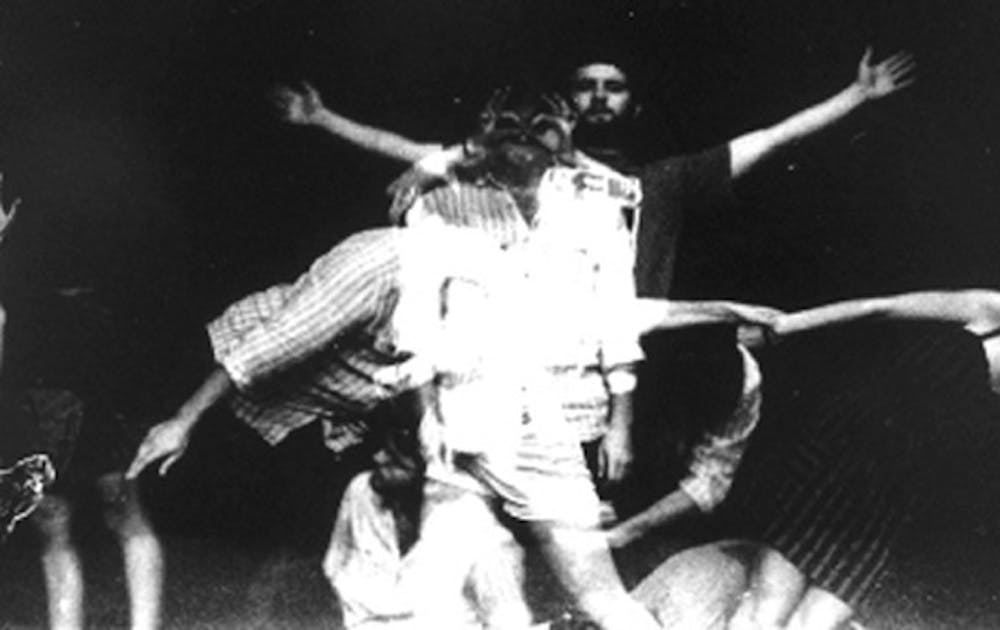An intimate staff of young, creative minds set their sights on a lofty goal—and succeeded.
Down in Chapel Hill, a twenty-five person staff of UNC students took a concept started by a blog site called The Salad Days and developed it into Should Does, an online literary magazine. Updated five times a week, Should Does showcases student works of fiction, non-fiction, poetry and art, but hopes to eventually exhibit the work of students from other universities as well.
“We see ourselves really as a community,” said Alex Karsten, editor-in-chief of Should Does. “We are putting a lot of artists and writers in touch with each other that would have just been sitting at their desks with their work.”
Five of the current contributors to Should Does originally wrote and edited for The Salad Days, which posted creative content every couple of days. The Salad Days differed from most blogs in that all pieces went through several rounds of editing before being put on the site, Karsten noted.
Should Does holds the same purpose of The Salad Days but executes it on a larger scale. Not only does Should Does publish content more often, it has a staff five times the size, which is responsible for both writing and workshopping, a process taught in UNC creative writing classes where people give feedback rather than edit a piece.
“I spent a long time in high school just writing in my own little notebook, but it’s important to get writers in front of each other to discuss new ideas,” Karsten said. “We’ve had projects that couldn’t have been realized with just one person.”
One such case was a comic book that required writers to collaborate with artists, he said.
Karsten noted that the Victor Hudson, president of Carolina Creates Writers, a subset of student organization Carolina Creates, pushed to take the concept of The Salad Days and develop it into a staff-driven, online literary magazine.
“[Karsten] made a compelling case for what [his] group would need to have a big impact on the literary scene at UNC,” Hudson said. “We’ve been lucky to have him.”
Carolina Creates Writers receives $1,000 annually to fund its initiatives, but as of now, Should Does is currently their only initiative. Should Does used the funding to launch their website and pay for their design, Hudson said.
Meredith Jones, the fiction editor of Should Does, said they looked to recruit people who were already writing on their own.
“If they weren’t putting stuff up on Should Does they would be doing this alone in their room anyway just for fun,” she said. “Usually they have a backlog of ideas and need someone to push them to get it done by a certain time.”
Staff members are required to both contribute and workshop two pieces per month, she added.
Kate Jones, a writer for Should Does, wrote in an email Monday that although she has more work to do than ever before, the community aspect of Should Does has helped her as a writer.
“I’m part of a community of artists—I have people who inspire me, that I can count on for good, honest advice and ruthlessly careful editing,” she said. “Working with Should Does forces me to get off my ass and write more.”
There are other outlets for creative writing on campus, such as UNC’s literary magazine Cellar Door. Should Does has an advantage, however, because it is on the Internet, Jones said.
“The awesome thing about the Internet is there’s no space constraints, so we can publish a great volume of work, including more experimental stuff,” she said.
Karsten also commended on the online aspect of the site as a strong suit, noting that it is one of the best times to be a writer because the Internet makes it so easy to get your work exposed.
The online aspect of Should Does also allows the magazine to accept submissions from students from other universities, he said. If Should Does were to have a print component, it would be difficult to have a presence at other universities due to overhead costs.
“With the Internet, it’s just sending a link,” he said. “We look forward to working with young people from around the nation, but for right now we will stay realistic and say we’d like to hear from Blue Devils.”
Regardless of who writes for the online magazine, its identity as a group of collaborative writers and artists has already positively influenced UNC’s artistic community.
“It’s made me more aware of writing as a conversation between many people rather than talking into the void,” Meredith Jones said. “It’s just such a creative outlet for so many people.”
Get The Chronicle straight to your inbox
Signup for our weekly newsletter. Cancel at any time.

